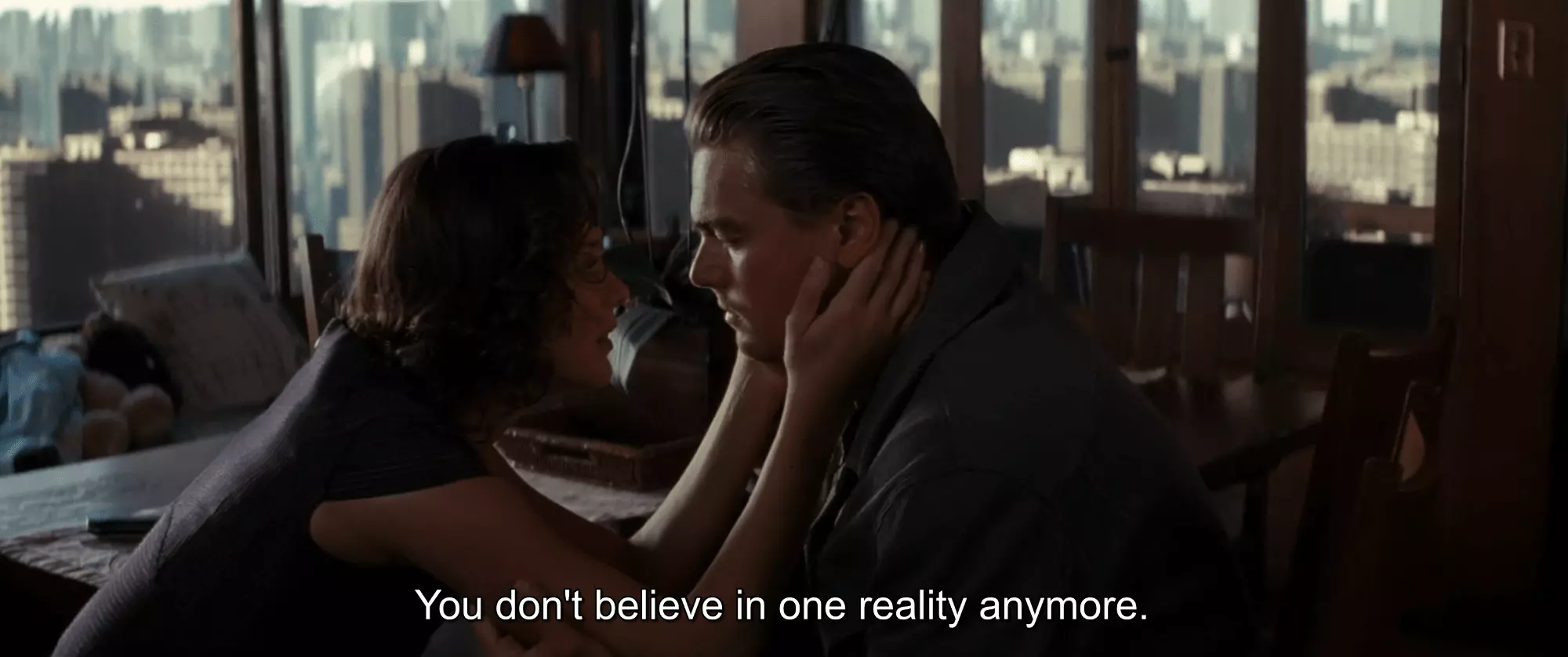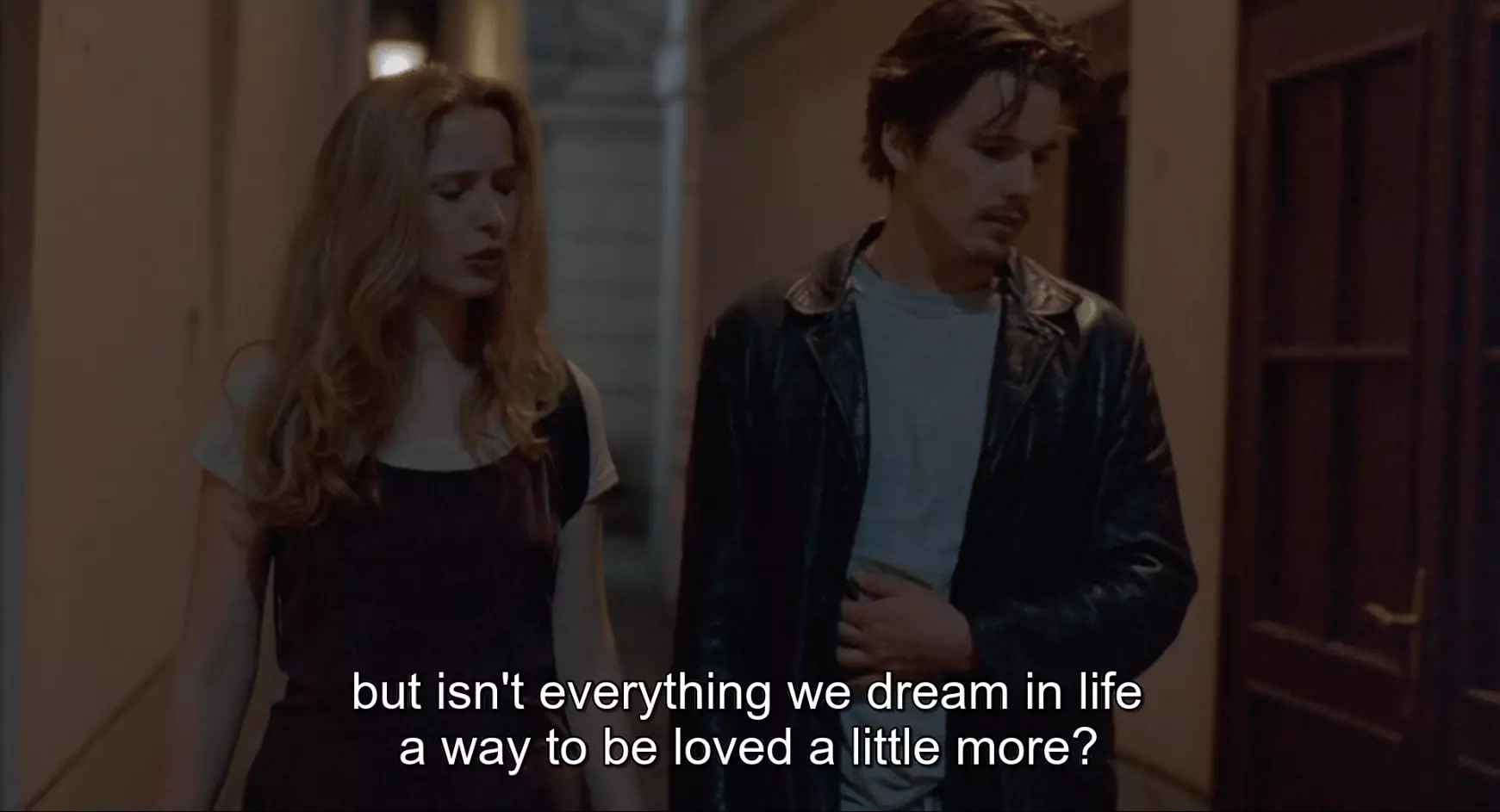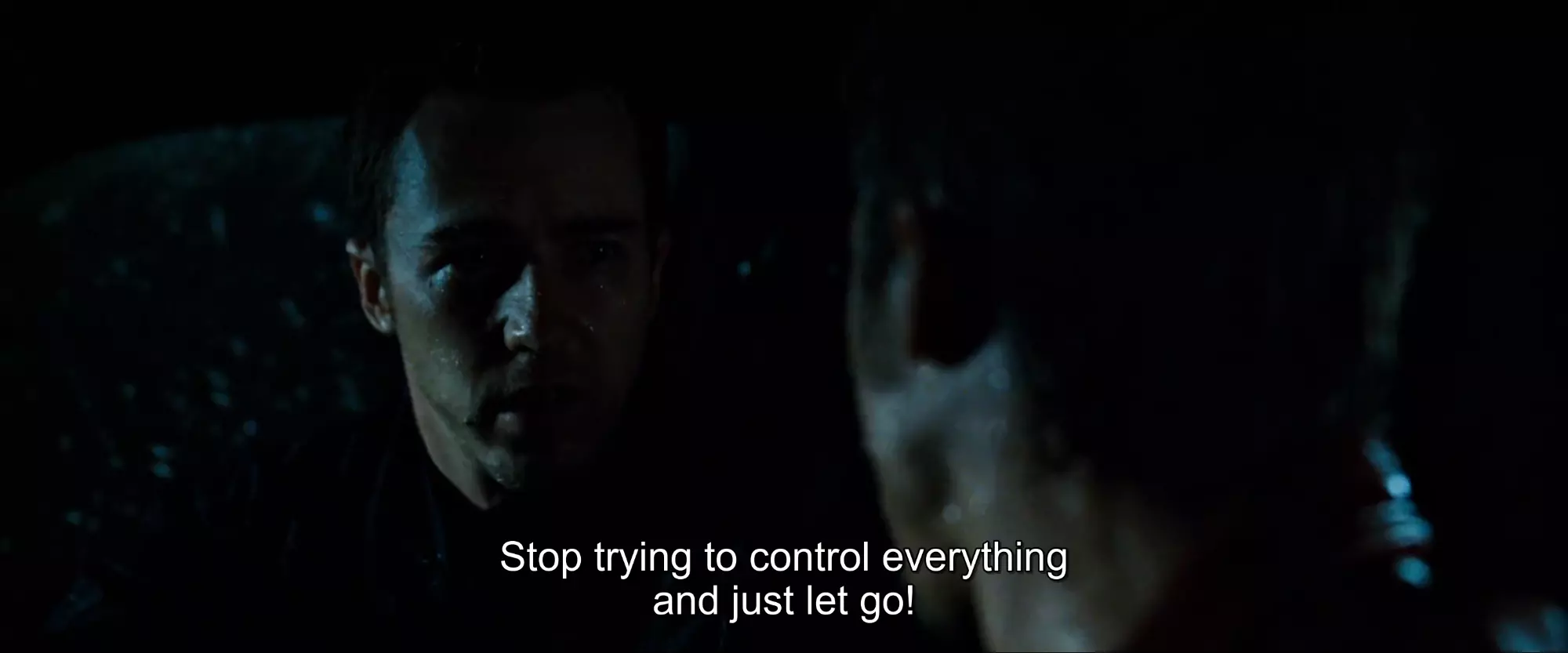Great Movies
I like that the medium of film is approachable and has mass appeal: while most people could not appreciate paintings in art museums, great movies seem to resonate with the masses. But at the same time, people leave the theatre with their own interpretations in relation with their own lives. Here are some of my favorite movies:
Inception

Inception is at the top of my list of great movies. To me, the sharing of dreams is such a brilliant concept. Because the movie didn't have an overly sci-fi theme, it seemed almost realistic.
Despite the overarching dream hacking, action-driven mission, the central plot of the movie is really about the internal conflict of Cobb who has to come to terms with the death of his wife. During the mission we see glimpses and hints of their tragic story. At the climax, Cobb, with all of his love and guilt, had to make the choice between his wife in the dream world and his children in reality. It's something that most action movies miss. They lack a strong character arc like that of Cobb.
What boggled my mind was when someone pointed out that the concept of sharing dreams is actually a metaphor for film itself. In a movie theatre, the lights dim, and the audience shares a vision created by the director. Nolan saw himself as Cobb, who is the architect building out all these elaborate dream worlds and narratives. Just like making a movie, people with different skills come together as a team (the actor, the production design, the writer, and the studio exec) to bring the director's vision to the audience.
A film, like dreams in the movie, therefore is a sandbox for people to build a world and tell a story. The creative freedom falls in the hands of the director as he brings people into his dreams.
The Before Trilogy

A trilogy about a romance made 9 years apart from each other, the movies take us on a journey through time, from the boy and girl who met on a train to a couple in marriage 18 years later.
The movies are mainly made up of dialogues between the two, which felt relatable and authentic. The conversations are so natural it's just like two old friends catching up. It may seem to lack drama and an exciting plot to follow. But between the lines, the characters show their personalities and subtly reveal their desires.
As they walk, they contemplate topics such as romance, youth, religion, and death. Boy and girl who have different backgrounds find their world-views collide. Yet a definite connection forms. I find it beautiful to see two people connecting, talking about the different ways they see things, and figuring out life together.
This reminded me of a quote by Hayao Miyazaki (creator of Totoro, Spirited Away, etc.):
“I’ve become skeptical of the unwritten rule that just because a boy and girl appear in the same feature, a romance must ensue. Rather, I want to portray a slightly different relationship, one where the two mutually inspire each other to live - if I’m able to, then perhaps I’ll be closer to portraying a true expression of love.”
I think a lot about relationships — what I want from one, what love is, romance vs "partnership," and the whole idea of being with a single person for the rest of my life, and the inescapble dissipation of chemistry that drew the two together as we age — I find it great that the movies try to address many of these questions.
Director Richard Linklater thought of the movies as a mirror, where everyone takes away different things from where they are in their lives. This is possible because the movies portray something inexplicably human — a search for connection, whether it is feeling deeply attached to someone or the jabs and punches we throw in an argument.
Fight Club

I wasn't able to fully appreciate Fight Club when I first saw it. I found it confusing that Tyler Durden recruited people with the promise of self-actualization only to take away their individuality much like the corporate jobs did. Maybe I am still interpreting that incorrectly.
In the beginning the narrator talks about his need to assemble a collection of Ikea furniture. "I'd flip through catalogues and wonder, 'what kind of dining set defines me as a person?'" I thought a lot about the scene when reading The Denial of Death. In the book, anthropologist Ernest Becker notes that it is fundamentally human to want to become heroes. Otherwise we see our lives as meaningless, existing only to decay.
Becker writes, "The social-hero system into which we are born marks out paths for our heroism, paths to which we conform, to which we shape ourselves so we can please others, become what they expect us to be." Consumerism paves the path to this idea of cultural heroism. At the top of our social hierarchy we see people with grand houses, beautiful cars, and fashionable clothes. We become heroes by collecting better items.
Tyler, the narrator's alternate ego, questions the pursuit, saying "the things you own end up owning you." The narrator's incessant desire for an Ikea collection is obviously shallow. And we are all confident that we wouldn't fall into the same traps. But how far away are we? Cultural heroism also defines success as a high-prestige career. We compete for standardized career paths that are sought-after and create optionality (think investment banking and software engineering at a big tech company), partly because we don't have any idea what we would do without the paths society laid out.
I was exposed to the entrepreneural individualism in the US and found it in strong contrast with mimetic competition I grew up with in China. To get ahead, one is not encouraged to be different, but rather to be the same but better, to fit the model of cultural success (more awards, better grades, standardized testing from middle school to high school to college). One is justified by one's credentials. Thus the culture seems to develop box-checkers who learn to fulfill requirements (which I still feel I am guilty of). I think that Fight Club exposes man's comfort in the mimetic cultural heroism. Becker suggested the concept of a "fear of life," where people follow the paths that the society wrote for them, too scared to break free and venture down the unpaved roads. Similar to Nietzsche's critique of "herd morality," Tyler pushes for man to overcome his slavish self, to live dangerously and embrace all the good and the bad that life has to offer.